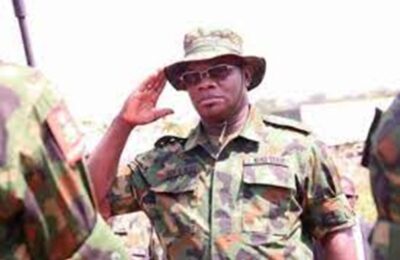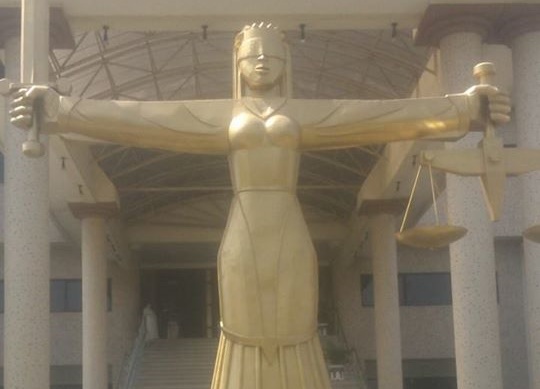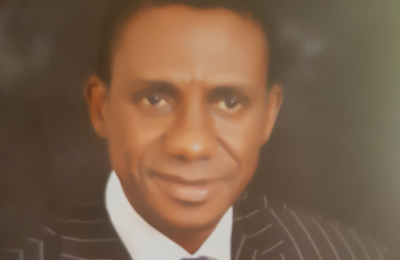Dr. Aminu Musa Audu, a United Kingdom (UK) based Nigerian author and expert in community policing, is Director, International Institute of Community Policing (IICOPOL), Idah, Kogi State. In this interview, he spoke on the need for total overhaul of Nigeria’s policing system, militarisation of elections, among other issues. Except:
As a global authority in policing, what is your assessment of the policing system in Africa?
Across Africa, there have been series of strives to cope with security challenges. But, it is far from being good enough to live up mandate of crime prevention and control. This largely accounts for the prevalence of chaos, translating to large scale poverty in the black continent.
How do you see the clamour for state police in Nigeria?
State police is not same as community policing. Though state police could facilitate community policing and may impede it too, but depending on culture of governance. Experiences have shown that most politicians in Nigeria hardly differentiate between governance and party politics. Prior to creation of centralised policing in Nigeria, there was Native Authority Police. What happened? Those in charge were using it to victimise and intimidate perceived or real political enemies at the grassroots. This compelled the establishment of Nigeria Police Force.
For example, let us look at State Electoral Commissions and the conduct of elections at their respective states. The recent amendment of constitution was in favour of state electoral functions being taken over by Independent National Electoral Commission. In the context of Ochamalienwu theory of community policing, I recommend that Nigeria Police Force practice decentralisation of operations without state ownership in view of the double-edged risk associated with it. There are proposals already developed. When implemented in partnership with governments would take care of any inadequacies in the Nigerian security architecture.
Are you satisfied with the present state of Nigeria Police Force?
No. Although I recognise previous efforts, verily there is need for improvement in the entire system through total and research-informed implementation of community policing. However, promotion of good governance in the country is key, through electing credible candidates. It is saddening that often, those with questionable character and corrupt tendencies are preferred as candidates to political offices because of their corruptly acquired. You cannot plant yam and expect to harvest of rice. It is high time we got it right in Nigeria. Political leadership has overwhelming influence on the policing architecture.
How could Nigeria overcome its numerous security challenges?
There must be total overhauling of the policing system in Nigeria. Good governance is germane. Government should outlaw thuggery, hate comments, which are fuelled by the political class and religious leaders. There should be an enhanced rule of law, frantic efforts to ensure poverty reduction and provision of employment opportunities to the citizens. If these issues are systematically addressed, youth restiveness would be minimised. More importantly, those with globally tested knowledge and opinions should be engaged in community policing policy making and implementation process.
Unfortunately, everybody is a security expert. That is why once community policing in mentioned, every mind will go to vigilante groups. Those with less than enough expertise are at the forefront on the premise of Nigeria factors and connections. I learnt that the Acting Inspector General of Police, Mr Muhammed Abubakar Ademu, is a serious professional. I recently read from newspapers where he mentioned that the right set of people would be identified and brought on board to make things work. I think that is a step in the right direction. I wish him the best of luck.
How do you see the handling of Boko Haram and the herdsmen issues by President Muhammadu Buhari administration?
Permit me to correct this impression. I’m not comfortable with the attitude of some press labelling herders or Fulani as terrorists, just like there is nothing like farmer terrorists, Igbo terrorists or Yoruba terrorists. Terrorism has nothing to do with tribal group or religion. It cuts across such narrow boundaries.
On the Boko Haram insurgency in North-East Nigeria, given the trends prior to the President Muhammadu Buhari administration in 2015, I must appreciate the Nigerian government for the journey so far. Government is not a one-man affair, but a process that involves institutions. So, it may take time to correct a faulty system of this nature. His main asset is sincerity of purpose in governance. But can we boast of that quality in all those working with him? Although we are not there yet, with time, areas of defaults shall be attended to more efficiently if Mr President could find capable and passionate hands.
My concern is that Mr President mentioned in his inaugural speech on May 29, 2015 that after attaining a stage in the struggle to liberate the country of the occupied territory, his government was to set up a Sociological Panel to investigate the causes, dynamics of the insurgency and to make suggestions. Sadly, I’m not sure whether that has been implemented. I do not subscribe to concentrating on taming the symptoms alone at the expense of conducting diagnosis to identify the root cause of the problem.
On the issue of herdsmen and farmers’ crisis, again this is a problem that predated his administration. Both herders and farmers have share of the blame and it requires comprehensive approach to provide solution. However, the crisis seemed to have been intensified by media misrepresentations, hate, those with conventional criminals’ tendencies in the society and malicious impact of practitioners of dangerous politics.
Considering the criticism that trailed the conduct of security agencies in 2019 polls, what do you think should be done to strengthen Nigeria’s democratic institutions?
Ideally, militarisation of elections is not healthy for the growth of democracy. Security agents such as the police are supposed to be neutral in the electoral process as required by law. Members of the Armed Forces play supportive roles because of the violent nature of some areas. Their participation is primarily to ensure safety and security of the people, property and electoral materials. However, corruption and abuse of office could mar this important function. That is the reason there were complaints in some instances. The authorities concerned should try as much as possible to preserve the integrity of their profession.
Again, the attitudes of some players are not helping matters. During the 2019 polls, we heard cases where lives were reportedly lost, including security agents. Some politicians still believe that elections are won by thuggery and other devilish and illegal methods. Even some incumbents, irrespective of political party in some states seeking re-elections, having been aware of their imminent defeat may resort to using state resources to kill opponents. I believe that the reported cases of those in fake uniforms are not conventional security agents. But, any evil perpetrated could be misinterpreted as handiwork of security agents. That is to tell us the complex nature of the problem. So, it requires systematic methods to curb it.
Could you tell us about your community policing initiative, the International Institute of Community Policing (IICOPOL)?
The International Institute of Community Policing was set up to be a leading global resource centre of excellence for effective community policing, and security strategies. It provides a forum for the mutual exchange and cross-fertilisation of ideas on community policing and experiences among members, other institutions, Governmental Departments in Nigeria and other part of the world, to pursue, maintain and promote the security, peace and well-beings of the people of the world. It helps to expand the frontiers of knowledge of community policing through researches, training, advocacy, seminars, workshops, conferences, colloquia, symposia, exhibitions, and press releases in both print and electronic media and the review of policing policies in Nigeria, Africa and the world at large.
IICOPOL also carry out research funding and scholarship support in community policing and synergy of efforts of stakeholders through dialogue and establishment of participatory mechanisms. It collaborates with the national government at all levels, bilateral and multilateral or organisations, Non-Government Organisations, Civil Society Organisations, public spirited individual and experts on community policing. It operates on four thematic areas: Research, training, professional fellowship and advocacy. It engages the security providers such as the police and the community in the promotion of community policing to enhance safety and security. The establishment of the International Institute of Community Policing (IICOPOL) in Idah local government area of Kogi State would open door to many business opportunities, making Nigeria the headquarter of community policing in Africa. That will also create jobs for Nigerian citizens and globally. We are mobilising local, national and international resources to actualise its aims and objectives.
Credit: Daily Independent




